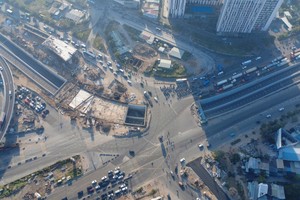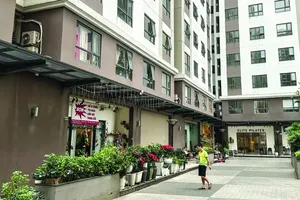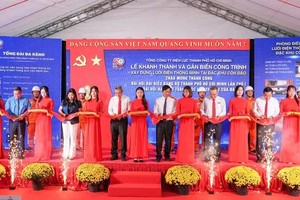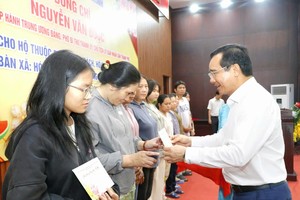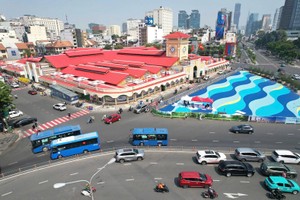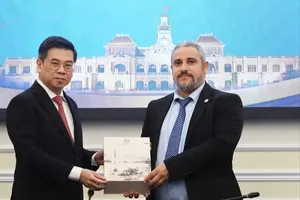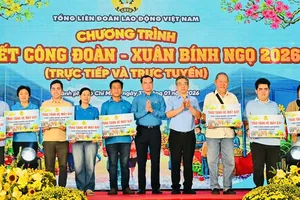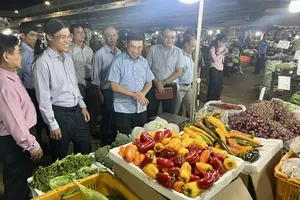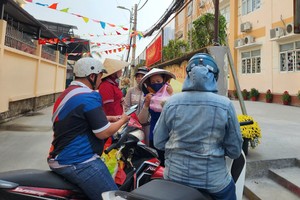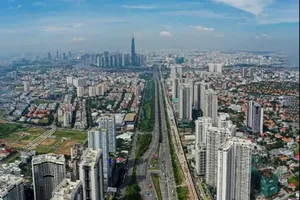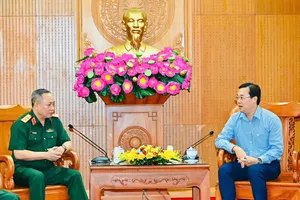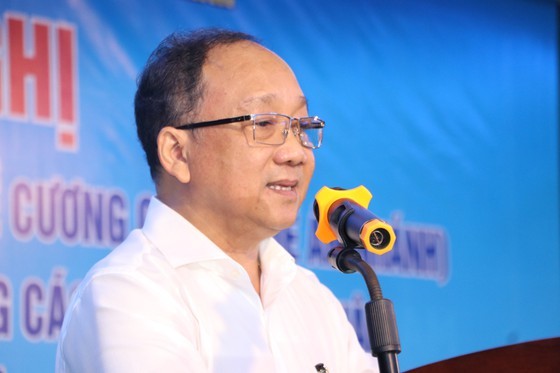 Head of the Ho Chi Minh City Institute for Development Studies' urban management and research division Dr. Du Phuoc Tan
Head of the Ho Chi Minh City Institute for Development Studies' urban management and research division Dr. Du Phuoc Tan
The municipal People's Committee today held a conference to deploy scientific projects under the Project of Investment and Conversion of outlying districts into urban districts or cities of Ho Chi Minh City from 2021 to 2030 chaired by Vice Chairman of Ho Chi Minh City People's Committee Vo Van Hoan and Director of Department of Home Affairs Huynh Thanh Nhan in Can Gio suburban district.
Dr. Du Phuoc Tan said that investing a lot in modern facilities and amenities without attention to shaping urban lifestyle will is a huge barrier in the process of socio-economic development of localities including converted outlying districts in the southern metropolis.
In Can Gio suburb, the People's Committee of Ho Chi Minh City held a conference to deploy scientific projects under the Project of Investment and Construction of Districts into Districts or Cities of Ho Chi Minh City in the 2021-2030 period (Photo: SGGP)
District leaders also revealed that outlying districts including Cu Chi, Hoc Mon, Binh Chanh, and Can Gio will be turned into urban districts. Particularly, Nha Be suburb is oriented to become a satellite urban district.
According to experts and managers, districts Can Gio, Cu Chi, Binh Chanh, Hoc Mon and Nha Be are very important gateways into Ho Chi Minh City, connecting with the eastern and southwestern provinces. In recent years, urbanization in these five districts has taken place rapidly with the formation of many urban areas, infrastructure, and highways.
The literacy level and urban lifestyle in outlying districts Can Gio, Cu Chi, Binh Chanh, Hoc Mon, and Nha Be are formed and are not much different from those of the inner-city districts. This has shown that the need to transform and upgrade administrative units from a district to a district or a city directly under Ho Chi Minh City is becoming an increasingly urgent issue.
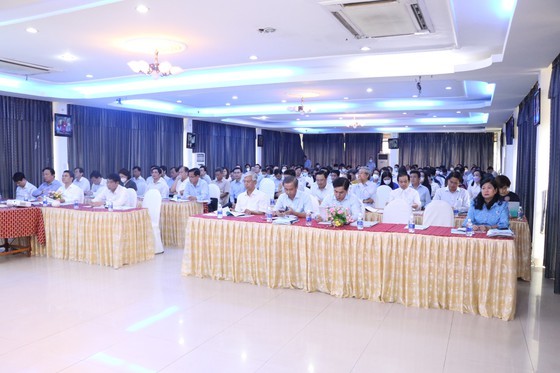 At the conference
At the conference
Therefore, the Resolution of the 11th Congress of the Party Committee of Ho Chi Minh City in the tenure 2020 - 2025 has set an important goal in the program of breakthroughs in management innovation in the city which is the implementation of the Investment-Construction Project for building districts, to establish administrative units at the district level in the period of 2021 - 2030.
At this conference, the municipal People's Committee deployed five scientific projects, which are detailed outlines of branch projects under the Project of Investment and Construction of districts or cities from 2021 to 2030.
Other projects include Outline of branch project ‘Urban People’; ‘Building and developing an urban culture in districts in Ho Chi Minh City from 2021 through 2030’, ‘Assessment of the current situation, propose solutions to improve the state management of the administration of the districts in the process of transforming from a district into a district or a city under Ho Chi Minh City’, ‘Scientific and practical basis for formulating socio-economic development goals according to the urban economic development model of districts turning into districts or cities of Ho Chi Minh City in the period of 2021-2030 and proposing implementation solutions’ and the project ‘Urban infrastructure’.
When it comes to discussion of each project, Dr. Du Phuoc Tan, it is necessary to upgrade districts to become urban centers of the third category or class 1 to improve the quality of life of rural people in suburban districts in addition to investing in physical facilities and social security. This will pave the way for investment and a suitable lifestyle according to standards to improve the quality of life of inhabitants in five suburban districts.
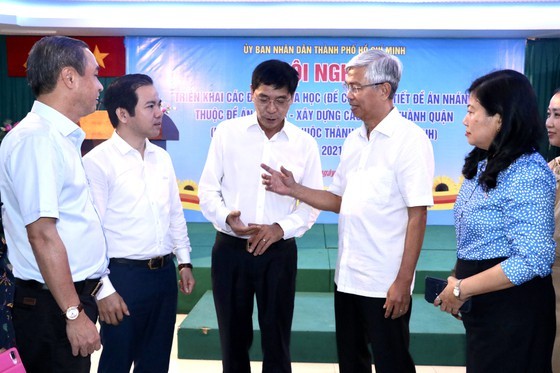 Conference participants
Conference participants
According to Dr. Du Phuoc Tan, four factors need to be converged when transforming outlying districts into urban districts or cities. These factors are the supply of housing for residents, facilitation of good access to services and social security, people need to adapt to the urban living environment, and having a high awareness of the present regulations.
In reality, there has been a shortage of accommodations for inhabitants in suburban districts, and services and social security are not accessible to all residents. Moreover, people’s awareness of the law is still low; therefore, more investment is needed in the coming time.
When it comes to the challenges in suburban districts, Dr. Du Phuoc Tan acknowledged that at present, suburban districts attract a large number of people from other places to live and work. However, because agricultural land has not been converted into urban land in parallel with urbanization, the life quality of residents is still low.
At the same time, locals in these districts are also facing eight major challenges during the process of transforming from suburban districts to urban districts or cities.
Regarding development orientations in the coming time, experts said, besides investment in infrastructure and economy, the urban administrative apparatus should have a strategy to focus on building and shaping urban lifestyles in five suburban districts.
Besides, the government should facilitate people’s access to social services such as education, health care, transportation, and garbage collection to improve their living quality. Local authorities also need to have policies on vocational training and reducing the rate of poor households.
Talking at the conference, Chairman of Nha Be District People's Committee Trieu Do Hong Phuoc suggested that the local administration necessarily continue to study more about measures to support the transition from district to district or city through access to education and healthcare services, information, policies, and legal framework. Stakeholders such as government, businesses, people, and mass socio-political organizations will have responsibility for enforcement during the transition.

